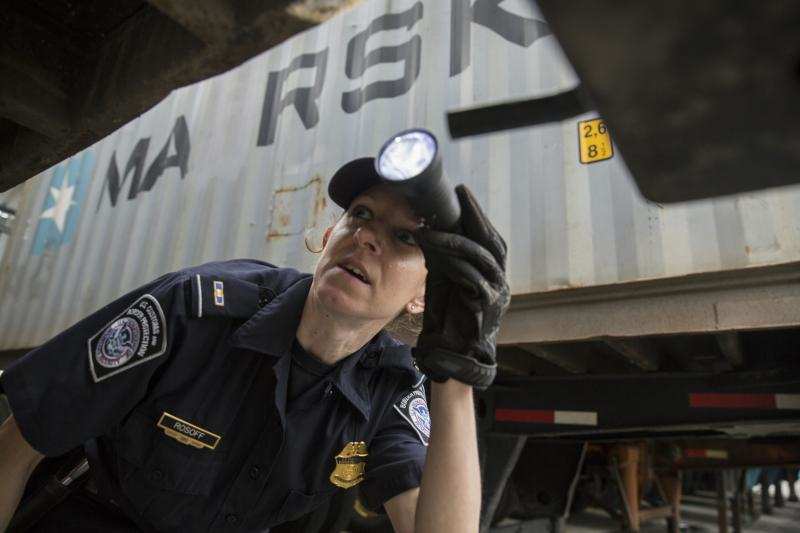
U.S. Customs and Border Protection (CBP) agriculture specialists at the Area Port of Baltimore have conducted 3,534 container searches since January, issuing 360 emergency action notifications and executing 625 actionable interceptions of commodities.
The Area Port of Baltimore has witnessed steady gains in cargo volume in recent years. It handled 38.4 million tons of general cargo in 2017, its third most on record, and was ranked the first in the nation regarding the handling of cars, light trucks, farm and construction equipment, and sugar.
“Customs and Border Protection’s agriculture specialists at the Port of Baltimore are the first line of defense against pests and diseases that could enter the United States and create potential harm to our nation’s agriculture resources,” Adam Rottman, the acting CBP area port director for the Area Port of Baltimore, said. “It is imperative to the CBP mission to detect and stop pests and diseases at the border before they can be spread elsewhere.”
During 2017, CBP agriculture specialists intercepted a number of invasive pests that hadn’t previously been identified at U.S. ports. The first port interception of the stilt bug was made in October, and the first port interception of live Lepidoptera larvae was made in December.
“A critical element of the Customs and Border Protection mission is to keep invasive and dangerous pests out of the United States,” Casey Owen Durst, the field operations director in Baltimore for CBP, said. “CBP’s agriculture specialists work tirelessly to detect and intercept prohibited food items, invasive weed seeds and insects, and plant and animal diseases that pose a threat to U.S. agricultural industries and our nation’s economy.”
The Area Port of Baltimore spans approximately 115 miles of the Maryland coast and includes hundreds of small vessel marinas, as well as public and private cargo terminals. CBP agriculture specialists use risk-based treat analysis to flag cargo for inspection.




